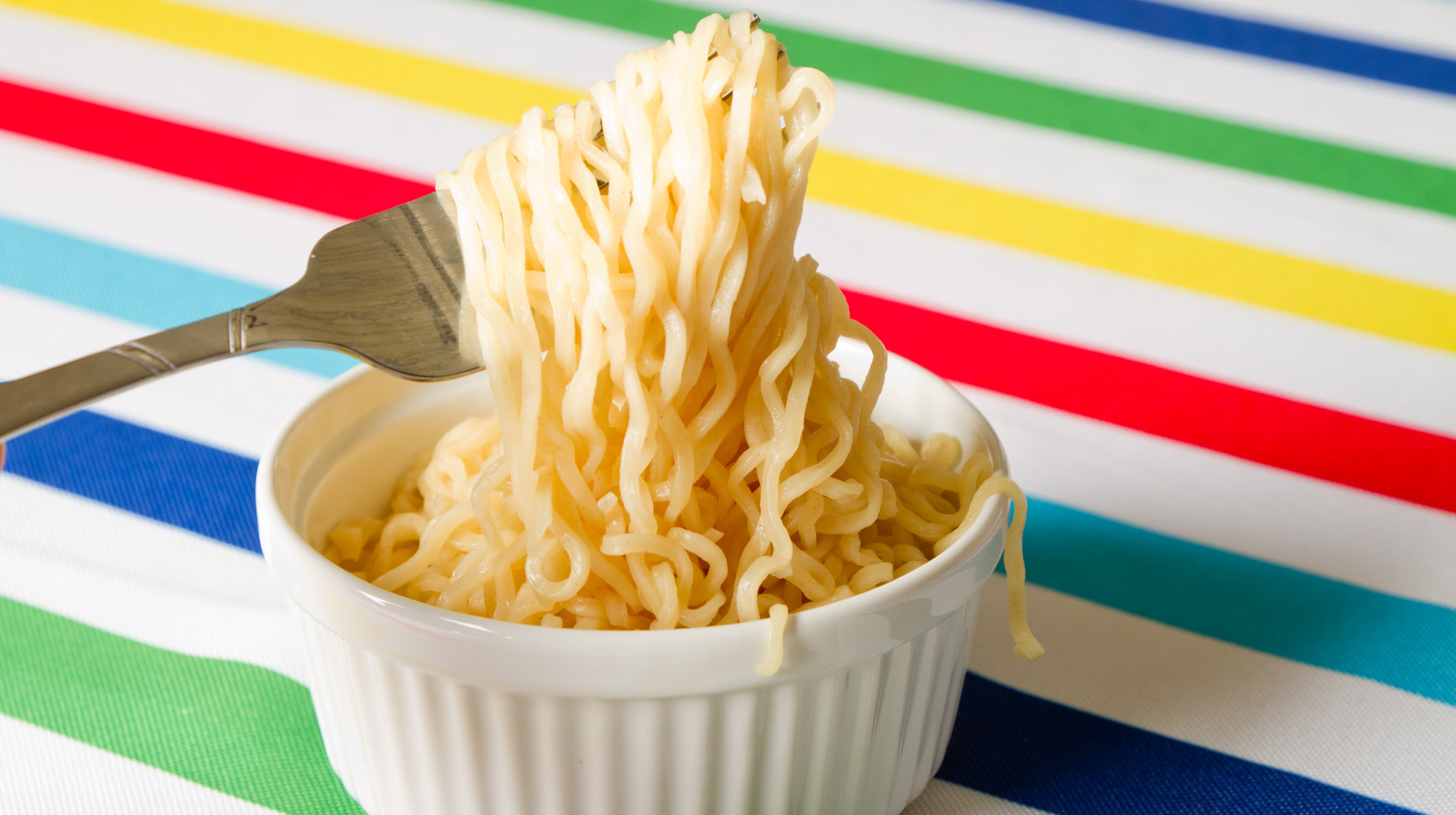America Owes Its Ramen Obsession To Nissin's Top Ramen
It's fair to say that the United States has an obsession with ramen. Outside of Asia we're the largest consumer of ramen in the world, and while the instant version is available at seemingly every grocery store, ramen restaurants are also increasingly common across the country. And now, as laid out in an article from Food Dive senior editor Megan Poinski, it's plain to see that we owe the proliferation of this beloved dish to one particular brand: Nissin's Top Ramen.
The invention of instant ramen is famously credited to Momofuku Andō, a Taiwainese businessman who founded the instant noodle company Nissin in 1958 to help combat hunger in post-WWII Japan. According to Poinski's reporting, Andō came to see the potential for sales in the United States, and it was in 1970 when his "Top Ramen" brand first arrived stateside. One year later, in 1971, Nissin introduced the now famous (and widely copied) brand "Cup Noodles," which Poinski writes was created in response to Andō "seeing Americans eating ramen out of cups because they didn't have bowls large enough for ramen."
Beyond the fact that seemingly everyone has memories of eating instant ramen, Poinski's story is interesting because it tracks both the birth of this iconic food, and how it has evolved in recent years. While ramen was not immediately embraced in the United States, its convenience and low cost helped it become a true staple food for many households and individuals, and that remains true even today. But, as Poinski writes, consumer desires have continued to change, and Nissin has consequently evolved some of its recipes (notably to remove MSG and to reduce sodium) and introduced new flavors, sizes, and iterations.
If you're a fan of ramen, instant or otherwise, this is a story you'll enjoy reading. And even if these noodles aren't to your liking, it's worth considering that with the embrace of instant ramen came a greater interest in restaurant quality ramen, and, I would argue, a greater acceptance of Japanese cuisine in general.
